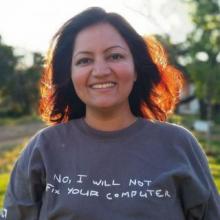You are viewing content from a past/completed conference.
Unconference: JVM Trends
Abstract
What is an unconference?
An unconference is a participant-driven meeting. Attendees come together, bringing their challenges and relying on the experience and know-how of their peers for solutions. A professional facilitator is also there to help keep the discussion moving forward, but where it goes is up to the participants.
It's a facilitated peer group that avoids the hierarchical aspects of a conventional conference, such as a top-down organization. Only the broad themes are predetermined. Everything else is just space for attendees to sound off ideas together, relate to shared challenges and rewards, and identify new ideas and goals.
Our unconference sessions have been based on the Open Space Technology and Lean Coffee format since 2006.
Why are we doing unconference sessions?
We have designed QCon for senior software practitioners. That role comes with demanding challenges and complex problems.
Connecting with your peers in a structured environment allows you to:
- Broaden your perspective with the benefit of the experience of others.
- Challenge how you've been doing things by breaking out of your bubble.
- Learn from peers who have already overcome the challenges you're facing now.
- Benchmark your solutions against other teams and organizations.
- Get real-world perspectives on challenges that might be too novel or specific to find solutions in books or presentations.
- Validate your technical roadmap with real-world research.
- Connect with others like you and build relationships that go beyond the event.
From the same track
Session
Distributed Systems
The Journey to a Million Ops / Sec / Node in Venice
Tuesday Oct 3 / 11:45AM PDT
Venice is an open-source derived data platform developed by LinkedIn. It is used mainly for ML feature storage, which requires the ability to refresh data at very high throughput, and to look it up with low latency.

Alex Dubrouski
Technical Lead of Server Performance Team @LinkedIn

Gaojie Liu
Senior Staff Software Engineer @LinkedIn, Open Source Contributor @Venice, a Massive Scalable Derived Data Platform
The Journey to a Million Ops / Sec / Node in Venice
Session
Java
How Netflix Really Uses Java
Tuesday Oct 3 / 10:35AM PDT
Netflix is (in)famous for the way we develop our systems. Micro Services, RxJava, Hystrix and Spring Cloud Netflix are just a few things that developers often associate with Netflix.

Paul Bakker
Java Platform @Netflix, Java Champion, and Co-Author of "Java 9 Modularity"
How Netflix Really Uses Java
Session
jvm
Optimizing JVM for the Cloud: Strategies for Success
Tuesday Oct 3 / 03:55PM PDT
Embracing cloud-native is more than just a trend; it's a strategic move for modern businesses. As organizations pivot from monolithic structures to agile micro-services, the role of the JVM becomes increasingly significant.

Tobi Ajila
Eclipse OpenJ9 JVM Engineer @IBM, Optimizing JVMs for Cloud Environments
Optimizing JVM for the Cloud: Strategies for Success
Session
Java
The Keys to Developer Productivity: Collaborate and Innovate
Tuesday Oct 3 / 05:05PM PDT
In the JVM track at QCon SF, the speakers talked about the role of collaboration and innovation and how this is impacting their business.

Heather VanCura
Vice President, Community Engagement @Oracle, Director & Chairperson at Java Community Process (JCP) Program, MySQL Community/DevRel, and Board Member
The Keys to Developer Productivity: Collaborate and Innovate
Session
Harnessing Exotic Hardware: Charting the Future of JVM Performance
Tuesday Oct 3 / 01:35PM PDT
Monica Beckwith offers a deep dive into the intricate world of the JVM and its evolving relationship with exotic hardware in her enlightening presentation at QConSF's JVM trends track.

Monica Beckwith
Java Champion, Author of JVM Performance Engineering, JVM Performance Expert @Microsoft, First Lego League Coach, Advocate for STEAM + kids
Harnessing Exotic Hardware: Charting the Future of JVM Performance







